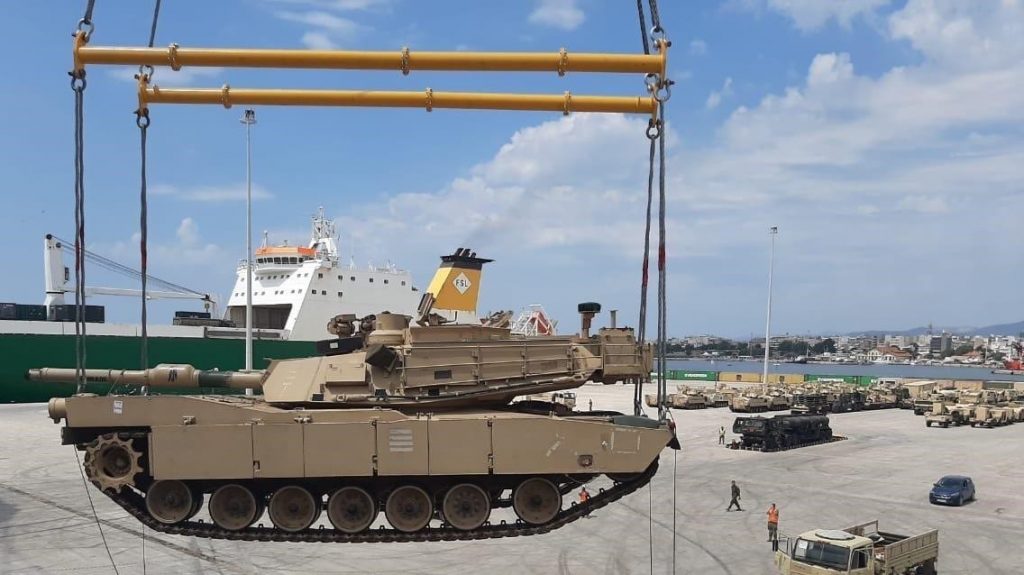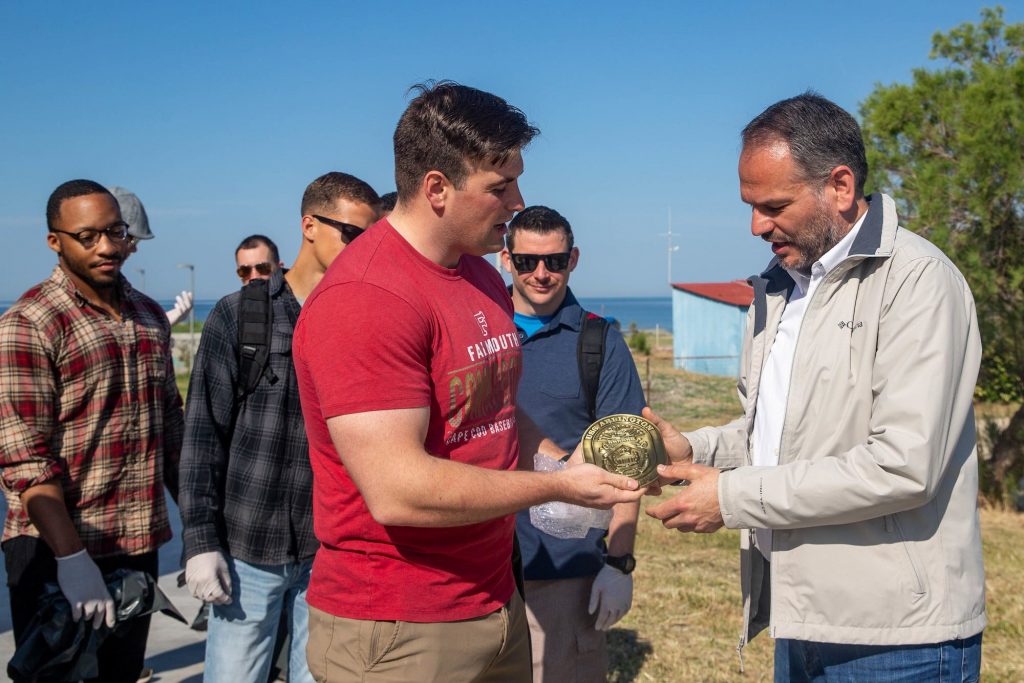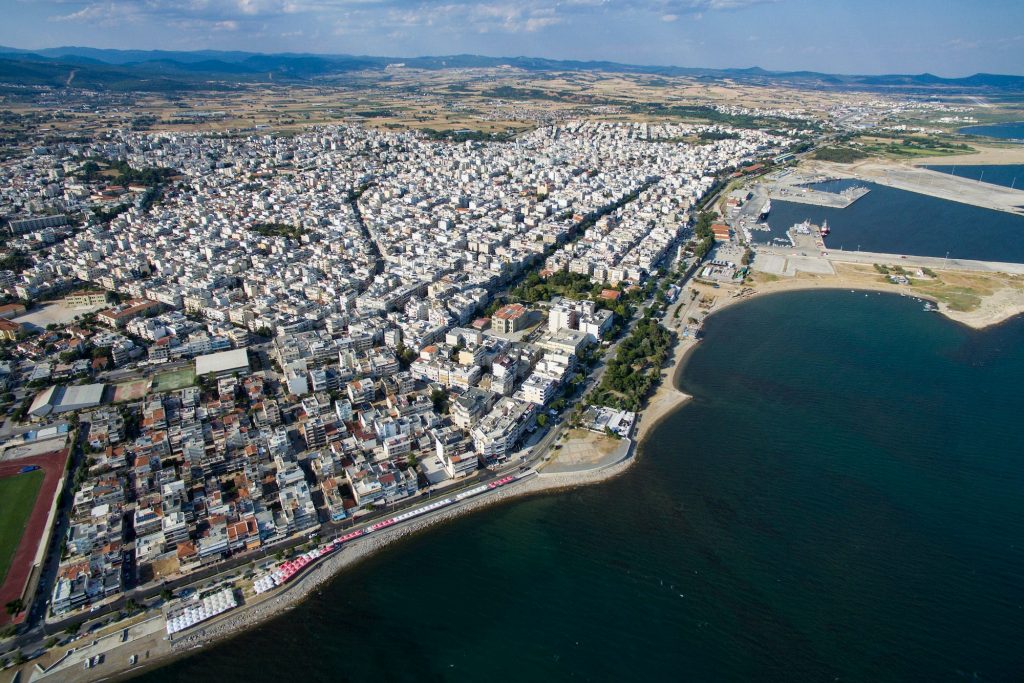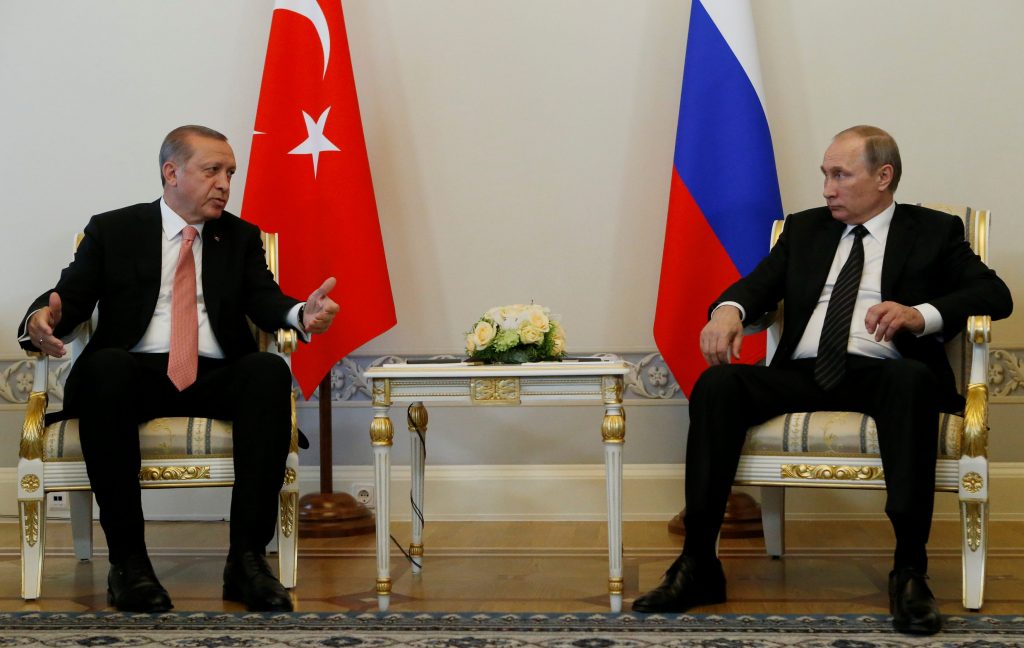- US sailors and Marines aboard USS Arlington visited the Greek port of Alexandroupoli in late May.
- They appeared to enjoy their stay — local media reported that they overwhelmed many restaurants.
- The visit reflects the US military's increasing interest in Greece amid growing tension in the region.
At the end of May, US Navy amphibious transport dock USS Arlington arrived in the Greek city of Alexandroupoli for a port call.
The 1,500 officers and enlisted Marines aboard the ship spent three days in the northeastern Greek city, and during their stay they reportedly ate all of Alexandroupoli's eggs.
Giorgos Alavantas, a restaurant owner, said 6,000 to 7,000 eggs were eaten during one day of the US visit. "In other words, we don't have eggs," Alavantas said, according to local media.
"I serve 16 different types of meat at my restaurant, and they tried them all," Georgios Davis, a former president of the Alexandroupoli hospitality association, told Greek newspaper Kathimerini.
The visit by sailors and Marines comes amid expanding cooperation between the US and Greek militaries, and it highlights the increasing importance of Europe's southeastern corner to the US and to the NATO alliance.
A security node in the Aegean

Alexandroupoli is close to Greece's border with Bulgaria and Turkey and about 60 miles from the Dardanelles, the maritime entryway to the Black Sea.
The city's location and its expanding road and railroad network provide a land route around the Bosporus and allow quick access to the Black Sea, the Balkans, and other destinations around NATO's southeastern flank.
The significance of Alexandroupoli was cemented in the updated Mutual Defense Cooperation Agreement signed between Greece and the US in October. Under the agreement, the US received priority access to the port, which has been especially valuable amid the war in Ukraine.
"That access allows us to continue to provide military assistance to Ukraine and to counter malign actors and exercise and operate in the Balkans and Eastern Mediterranean and the Black Sea region," Secretary of Defense Lloyd Austin said during a recent visit by the Greek defense minister to Washington DC.

The increased US presence is meant to support NATO allies in the region and to counter Russia's influence in a part of Europe where Moscow has traditionally held sway because of ethnic and economic ties.
"Greece is a key hub for supporting and ... projecting allied presence in a region facing various forms of revisionism," Greek Defense Minister Nikos Panagiotopoulos said while in Washington.
Since October 2021, the US has disembarked equipment and troops in Alexandroupoli numerous times, including what were its two largest disembarkation operations in Greece ever.
The port was has also been used for exercises and has supported the regular rotation of US troops and equipment in Europe through Operation Atlantic Resolve.
On August 3, Alexandroupoli's port authority chairman announced that the Italian army will use the port to move equipment to Europe. Britain is also planning to do the same.
Shutting off Russian gas

Alexandroupoli also has a role in European energy security, with plans to build a Floating Storage and Regasification Unit (FSRU) for liquefied natural gas in the sea a few miles south of the city.
The regional FSRU project will begin operations by the end 2023 and be a convergence point for regional gas pipeline networks running from Italy and Bulgaria to Turkey and Georgia.
The city's FSRU facility will be part of the EU's Southern Energy Corridor, an initiative to bring Azeri gas through Turkey to Europe and help the continent decouple itself from Russian natural gas.
"As Europe is now moving rapidly to reduce its vulnerability to Russian energy blackmail and get away from Russian gas, the Alexandroupoli FSRU becomes more and more important," Geoffrey Pyatt, then the US ambassador to Greece, said in May.
Not everyone is happy with Alexandroupoli's growing geostrategic importance.
A pressure point

Russia and Turkey have both expressed dissatisfaction at the enhanced US presence in Alexandroupoli.
In December, Kremlin Press Secretary Dmitry Peskov told Greek media that "the problem is very simple. More and more NATO and US troops are gathering in your territory. Hundreds, thousands of units of military equipment are transported through Alexandroupoli."
"This worries us, you have to understand us," he added.
Greece had maintained a working relationship with Russia, but Moscow's invasion of Ukraine and Athens's support for Kyiv have led their relationship to deteriorate. Each has expelled some of the other's diplomats, and Russia recently declared Greece an unfriendly state.
Turkish President Recep Tayyip Erdogan has also expressed his opposition to the US presence. "Establishing a base there bothers us and our people," Erdogan reportedly told President Joe Biden in October, shortly before the US and Greece signed the updated defense-cooperation agreement.
Greece and Turkey are both NATO allies but have disputes over a number of issues. Their relationship has deteriorated further in recent months, following Turkey's challenge of the sovereignty of a number of Greek islands.
In June, Erdogan reiterated his opposition to US bases in Greece. "Against whom were they established? The answer they give is 'against Russia.' We don't buy it," Erdogan said.
The US military currently uses a Greek army base near Alexandroupoli and has not yet established its own base in the city. However, as Alexandroupoli's infrastructure expands and tensions in the region deepen, its importance will keep increasing.
